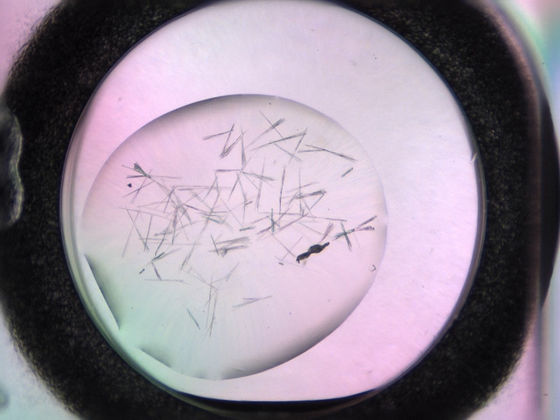Google develops a system to discover protein crystals with AI and expects breakthrough of new drug development

Brain Team, which studies Google's Artificial Intelligence (AI), collaborated with researchers at Duke University and announced that it developed a system to automate protein crystallization experiments by using AI.
Google AI Blog: Automating Drug Discoveries Using Computer Vision
https://ai.googleblog.com/2018/07/automating-drug-discoveries-using.html
Teaching a Machine to Spot a Crystal - Duke Research Blog
https://researchblog.duke.edu/2018/06/20/teaching-a-machine-to-spot-a-crystal/
Since the biological functions of proteins are determined by their molecular structure, analysis of molecular structure is important for developing effective new drugs. And protein crystals are necessary to analyze the molecular structure of the protein. However, there are still many unknown parts of protein crystallization, and there are still difficult things even with modern technology.

by MARCO
Among the experiments of protein crystallization, most of its preparation and experimental processes are progressing automation, but human beings have only to visually check the results of crystallization experiments with a microscope. In that case, the discovery of protein crystals is dependent on the observation power and experience of the scientist who is carrying out the experiment, and if the crystallization is missed or misundercaped by any chance, an important discovery opportunity There is even a possibility that it will be lost.
I think that the machine recognition of Crystallization Outcomes (MARCO), which Duke University is taking the lead in, can alleviate these risks by automatically recognizing the artifacts of protein crystallization with AI, Request cooperation by bringing labeled data of a protein crystallization experiment exceeding 500,000 points to Google. In response to this, the Google Brain Team developed a system that can automatically classify the results of crystallization with a deep convolution neural network.
By learning the vast and diverse data collected by MARCO, AI can visually identify protein crystals with high accuracy. According to Professor Patrick Chabonaut of Duke University, the accuracy of crystal identification of protein is about 85% for humans, while the latest AI by Google Brain Team was 95%.

Professor Charbernaut says, "AI automatically automates the discovery and classification of protein crystals, which makes it possible to almost automate the experiment of protein crystallization itself, further facilitates protein structural analysis, new drug research We can expect a significant reduction in the time and costs associated with this. "
Google Brain Team has published this AI model on GitHub and other researchers can use this AI for his own research by using Google Cloud Machine Learning (ML) Engine .
Related Posts:







